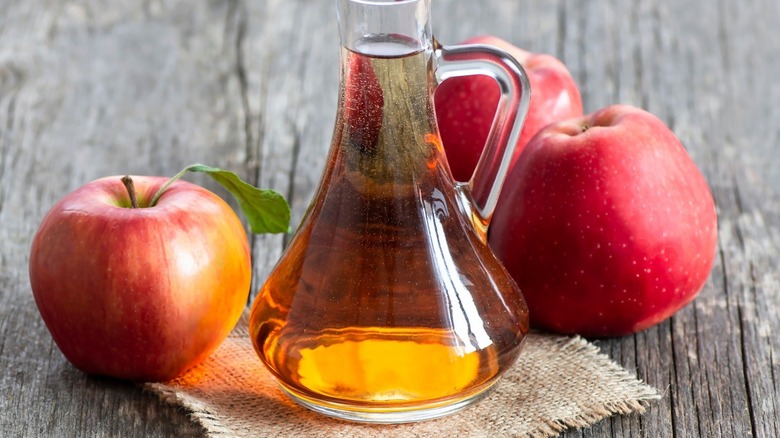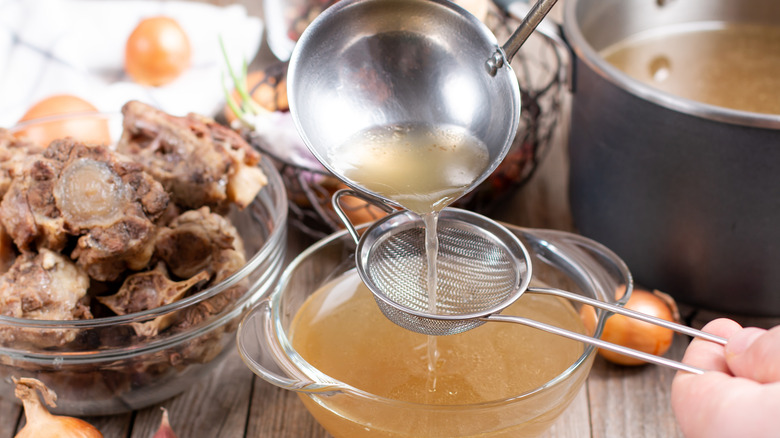Should You Be Adding Apple Cider Vinegar To Your Bone Broth?
We may receive a commission on purchases made from links.
Food trends come and go. Some are backed by the science of nutrition, others are mere folly and fallacy, and some food trends actually be dangerous. But one thing seems certain: Consumers' interest in wellness is on the rise. McKinsey & Company reports that the approximate worth of the global wellness market is already a whopping $1.5 trillion and is expected to grow 5% to10% annually. It also conducted a wellness survey that spanned six countries and 7,500 consumers and found that 75% of participants said they highly valued wellness.
Recently, gut health has been a point of concern for social media influencers, and bone broth has entered the spotlight as a possible fix for poor gut health. The good news for those who follow the trend is that there's research that supports at least some of the health claims about regularly consuming bone broth. Made from animal bones slow-simmered in water with vegetables and herbs for additional flavor, bone broth boasts a wide range of nutritional advantages. Thanks to the gelatin, amino acids, and collagen in bone broth, it might aid in digestion, combating inflammation, improving joint health, and even getting a better night's sleep (per Healthline).
Many bone broth recipes call for apple cider vinegar (ACV). According to WebMD, ACV is made by combining apples, yeast, and sugar, and allowing fermentation to happen. But is it a useful addition?
ACV can help extract the collagen found in animal bones
While apple cider vinegar as a standalone ingredient potentially offers some health benefits like lowering blood sugar levels and aiding in weight loss efforts, there hasn't been enough research conducted to understand how a single shot of ACV can impact your overall wellness (per WebMD). However, ACV has been characterized as a great complementary ingredient when making bone broth. According to MasterClass, submerging the bones in water with a splash of acid like ACV or lemon juice minutes before bringing it to a simmer helps extract the collagen. Once the broth is brought to a simmer, the collagen breaks down over time, releasing amino acids, proteins, antioxidants, and other nutrients. However, there are many variations of bone broth, and the exact amount of nutrients will vary, per Healthline.
Bone broth's health benefits hinge on just how much you can extract from the bones – hence the brewing process can last up to 24 hours. What if you don't have ACV on hand? Your bone broth might not suffer without it. According to Grand View Farm, as long as you simmer the broth for the right amount of time, you'll still extract what you need from the bones. Nourished Kitchen says that smaller bones take less time, while larger bones require a lengthier brewing process. While making bone broth is a relatively hands-off process, getting it just right takes time.

